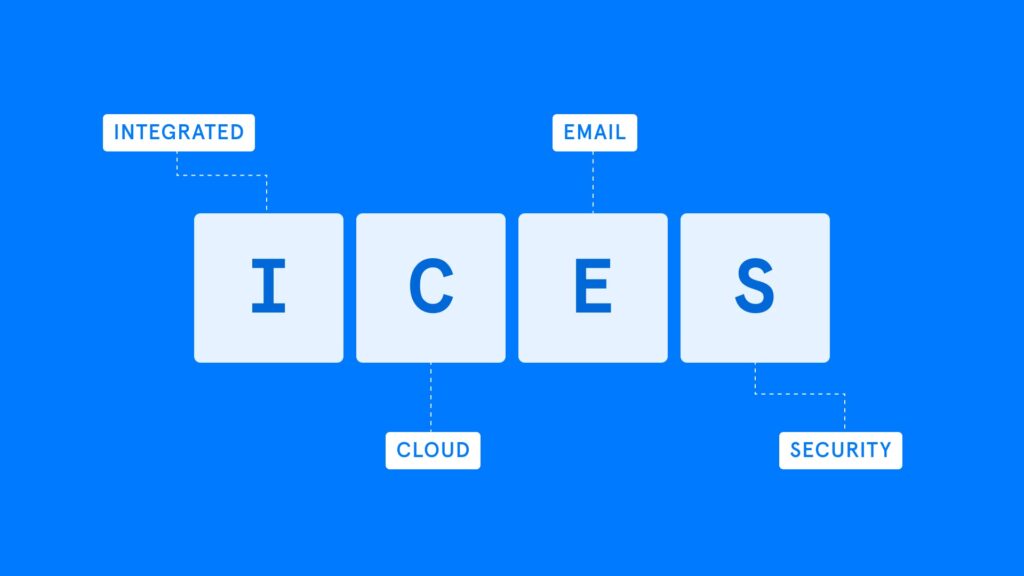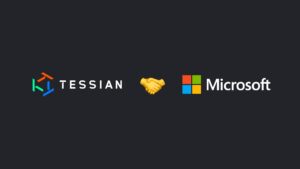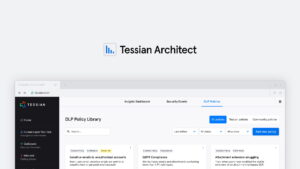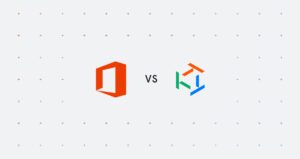In recent years, the shift away from on-prem email platforms to cloud-based platforms has been dramatic, with Gartner estimating that 70% of organizations now use cloud productivity suites like Microsoft 365 and Google Workspace. But as email migrates from legacy on-prem approaches to the cloud, securing these cloud based services becomes the next big challenge. Enter Integrated Cloud Email Security.
What is an Integrated Cloud Email Security (ICES) Solution?
The term ‘Integrated Cloud Email Security (ICES)’ was coined in the Gartner 2021 Market Guide for Email Security. ICES solutions were introduced as a new category, and positioned as the best defense against advanced phishing threats that evade traditional email security controls.
ICES solutions are cloud-based, and use APIs to detect anomalies in emails with advanced techniques such as natural language understanding (NLU), natural language processing (NLP) and image recognition. Using API access to the cloud email provider, these solutions have much faster deployment and time to value, analyzing email content without the need to change the Mail Exchange (MX) record.
Taking it one step further, ICES solutions can also provide in-the-moment prompts that can help reinforce security awareness training (SAT), and are able to detect compromised internal accounts. In the report, Gartner reflected on the future of ICES solutions, suggesting that they would eventually render SEGs redundant:
“Initially, these solutions are deployed as a supplement to existing gateway solutions, but increasingly the combination of the cloud email providers’ native capabilities and an ICES is replacing the traditional SEG.”
Gartner predicts that by 2023, at least 40% of all organizations will use built-in protection capabilities from cloud email providers rather than a secure email gateway (SEG)… But why?
In short, legacy SEGs are no match for the cyber threats of tomorrow. Email is responsible for 96% of cybersecurity breaches, making it the greatest threat vector. In fact, in the 12 months between July 2020 and July 2021, Tessian detected 2 million malicious emails that had bypassed SEGs. So why are traditional SEGs not fit for today’s cybersecurity landscape?
Rule-based approaches don’t cut it
SEGs were developed in 2004 with on-premise email servers in mind and use a rule-based approach to threat detection. They use deny lists, allow lists and signatures for message authentication to help stop attacks – with these lists created using threat intelligence. They are reactive by design, and protect email data against threats that are already known. This means that SEGs offer no protection against zero-day attacks (a significant and growing threat vector), and are easily evaded by attackers using advanced social engineering campaigns. SEGs also fail to detect business email compromise (BEC), account takeover (ATO) and advanced spear phishing attacks.
The migration to the cloud
More and more, organizations are adopting SaaS offerings like Microsoft 365 – which have SEG capabilities natively included. This shift was well underway before the pandemic, but has since been accelerated with data suggesting that ICES solutions are here to stay and will displace SEGs from the cybersecurity stack.. The rise of offerings like Microsoft 365 and Google Workspace and the move away from SEGs comes as no surprise, with enhanced functionality at the platform level that can include:
- Blocking emails from known bad senders
- Scanning attachments with AV
- Blocking emails with known bad URLs
- Content analysis to identify SPAM
Given these native SEG-like capabilities in cloud productivity suites, makes ICES solutions the perfect supplement to ensuring comprehensive email protection. ICES solutions are so effective because they provide protection against many of the threats SEGs fail to detect – when used in combination with SaaS offerings like Microsoft 365.
What are the benefits of ICES solutions?
ICES solutions offer more than just threat detection. Key features of ICES solutions can include:
- BEC and ATO Attack detection using NLU, NLP, social graph analysis and image recognition
- Context-aware banners to warn users
- Phish Reporting
- Mail Security Orchestration, Automation and Response (MSOAR) capabilities to assist in automatic reclassification of emails and removal from inboxes
How to evaluate ICES vendors
The number of ICES solutions available on the market is continually growing. There are a few key things you should consider when evaluating which ICES solution to use. Taking a look at your current email security framework and comparing it to your end goal, the following elements should be analyzed:
- Time-to-value, return-on-investment time horizon
- Cost of effort to install and manage
- False positive rate
- ML- and AI-based technology to detect advanced social engineering attacks including BEC and ATO attacks
- Ability to analyze and map conversation history
- Computer vision to analyze suspicious data and links in emails
- User education controls to reinforce training, including context-aware banners and/or in-line prompts
- Ability to analyze emails prior to delivery to the end user
- API integration of email events into Extended Detection and Response (XDR) or Security Information and Event Management/Security Orchestration, Automation and Response (SIEM/SOAR) solutions
Still struggling to decide? Have a look at the 2021 Gartner Market Guide to Email Security, which contains further information on ICES vendors, including Tessian.
“We trust Tessian’s technology to flag when an email is malicious or anomalous, and we trust our employees to interact with the warnings and do the right thing. And, we can actually see that threats are being prevented. We can see it works. But, without any investigation and no noise.
”
Mike Viera
Perimeter and Cloud Security Capability Lead at Schroders
Why choose Tessian?
Tessian was recognized as a Representative Vendor for Integrated Cloud Email Security (ICES) in the recently released 2021 Gartner Market Guide for Email Security.
What sets Tessian apart from other ICES solutions is its advanced email security and email data loss prevention (DLP) capability, including:
- Advanced Spear Phishing Protection
- Advanced Attachment and URL Protection
- Internal Impersonation & CEO Fraud
- Advanced Spoof Detection
- Counterparty & Vendor Impersonation
- Brand Impersonation
- External Account Takeover
- Invoice Fraud
- Bulk Remediation
- Automated Quarantine
- Threat Intelligence
Tessian also offers protection against both malicious and accidental data loss, in-the-moment security awareness training for suspected phishing emails and in-the-moment security awareness notifications.
To summarize, there are four key Tessian differentiators:
- Threat prevention: Tessian protects against both known and unknown email attacks, including business email compromise, account takeover, spear-phishing, and all impersonation attacks that bypass SEGs, M365, and G Suite. Protection also includes class leading email DLP.
- Education and awareness: With Tessian’s in-the-moment training, organizations can educate and empower users to build continuous email security awareness
- Reduced admin overhead: Tessian removes the burden on SOC and admins by automating repetitive tasks such as maintaining triage and review. This eliminates the need for human verification of email threats, reducing FTE requirements.
- Data-rich dashboards: With Tessian, security teams have clear visibility and the ability to demonstrate clear ROI
To find out more about Tessian as an ICES solution, and the key findings listed in the 2021 Gartner® Market Guide for Email Security, click here.















